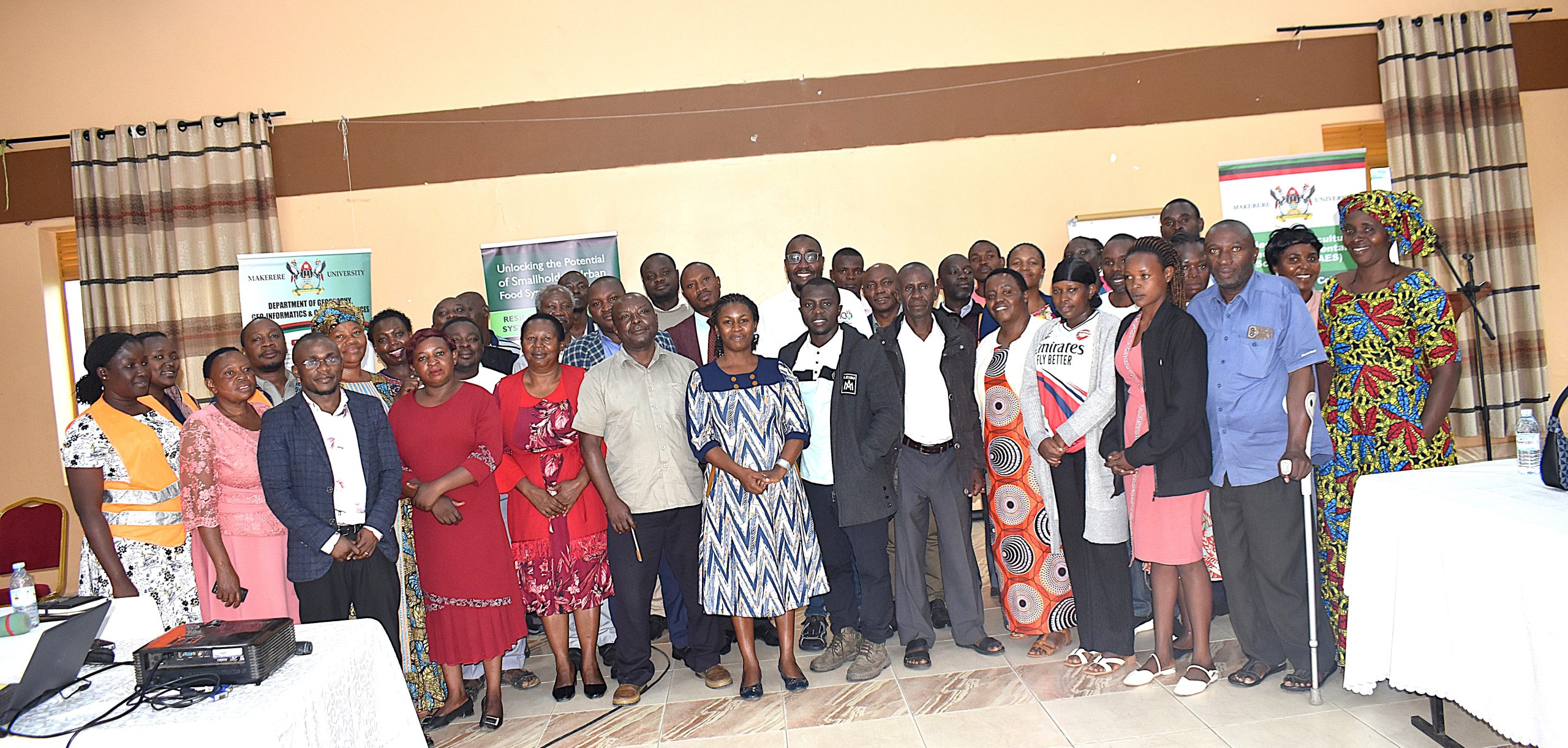
Following the success of its initial phase, Makerere University has launched Phase II of the Resilient Urban Food Systems (RUFS) project, aimed at deepening food security and climate resilience in Kasese Municipality and Mbale City. Funded through the AgriFoSe2030 programme and coordinated by Prof. Frank Mugagga of the Department of Geography, Geo-Informatics, and Climatic Sciences at Makerere University, the project continues to address urban food system challenges through inclusive, climate-smart, and community-driven solutions.
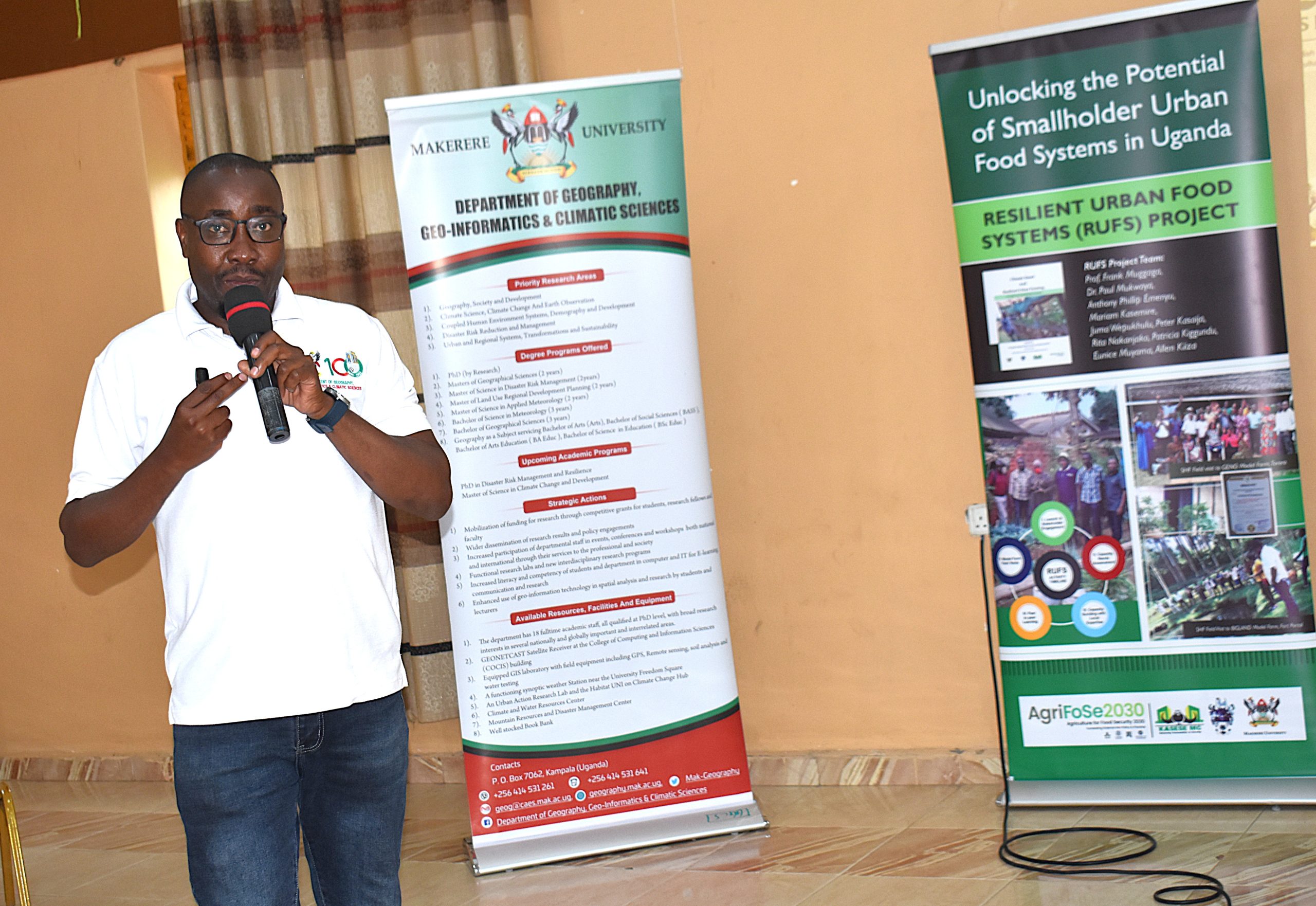
Achievements registered under Phase I of the RUFS Project
Phase I of the RUFS Project delivered a range of impactful outcomes aimed at building more inclusive and sustainable urban food systems. The achievements included:
- Formation of smallholder farmer platforms
RUFS established the Kasese and Mbale City Food Systems Platforms, empowering smallholder farmers to actively shape resilient urban food systems.
- Multi-stakeholder collaboration
The project facilitated dialogue among farmers, civil society, private sector actors, and local governments to improve coordination and governance.
- Exposure and exchange visits
Learning exchanges and site visits enabled peer learning, spurred innovation, and encouraged the adoption of best practices across urban and peri-urban farming communities.
- Capacity building for local experts
The project enhanced the technical and organizational capacities of local professionals, empowering them to lead and sustain resilient food system initiatives.
- Resource commitment from local governments
Tangible commitments from local leaders demonstrated strong political will to support inclusive urban food systems.
6. ecognition of smallholder farmers
The contributions of smallholder farmers gained greater recognition, acknowledging their essential role in ensuring food security and urban resilience.
7. Amplification of local voices
Community stories, practices, and lessons were documented and shared widely, helping to shape urban food policies from a grassroots perspective.
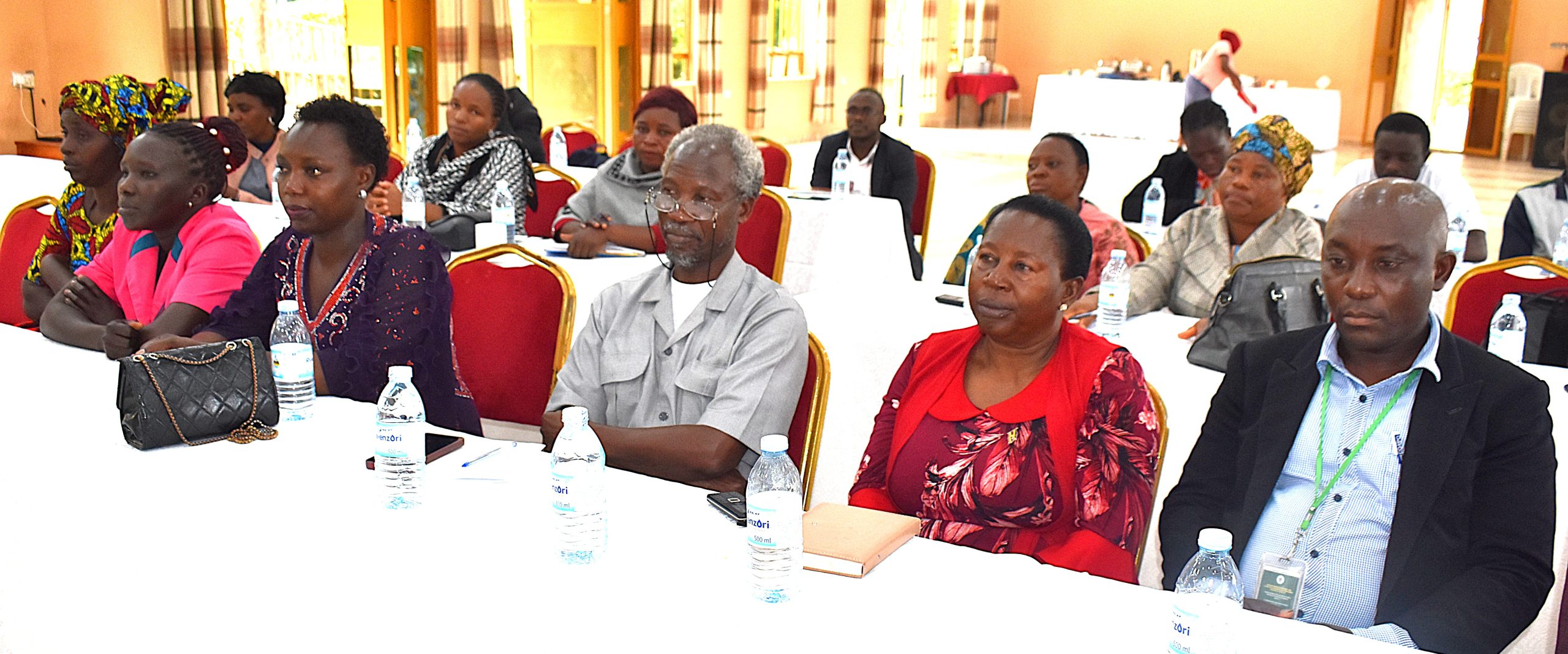
Goals and focus of Phase II
Phase II of the RUFS project sets out to: 1) Strengthen flood and drought resilience in urban communities through expanded stakeholder collaboration in Kasese and Mbale, 2) Raise community awareness on climate risks and equip residents with preventive and adaptive skills, 3) Integrate indigenous and local knowledge into policy and planning for more context-relevant decision-making, and 4) Co-develop knowledge with both state and non-state actors to inform inclusive and evidence-based decisions.
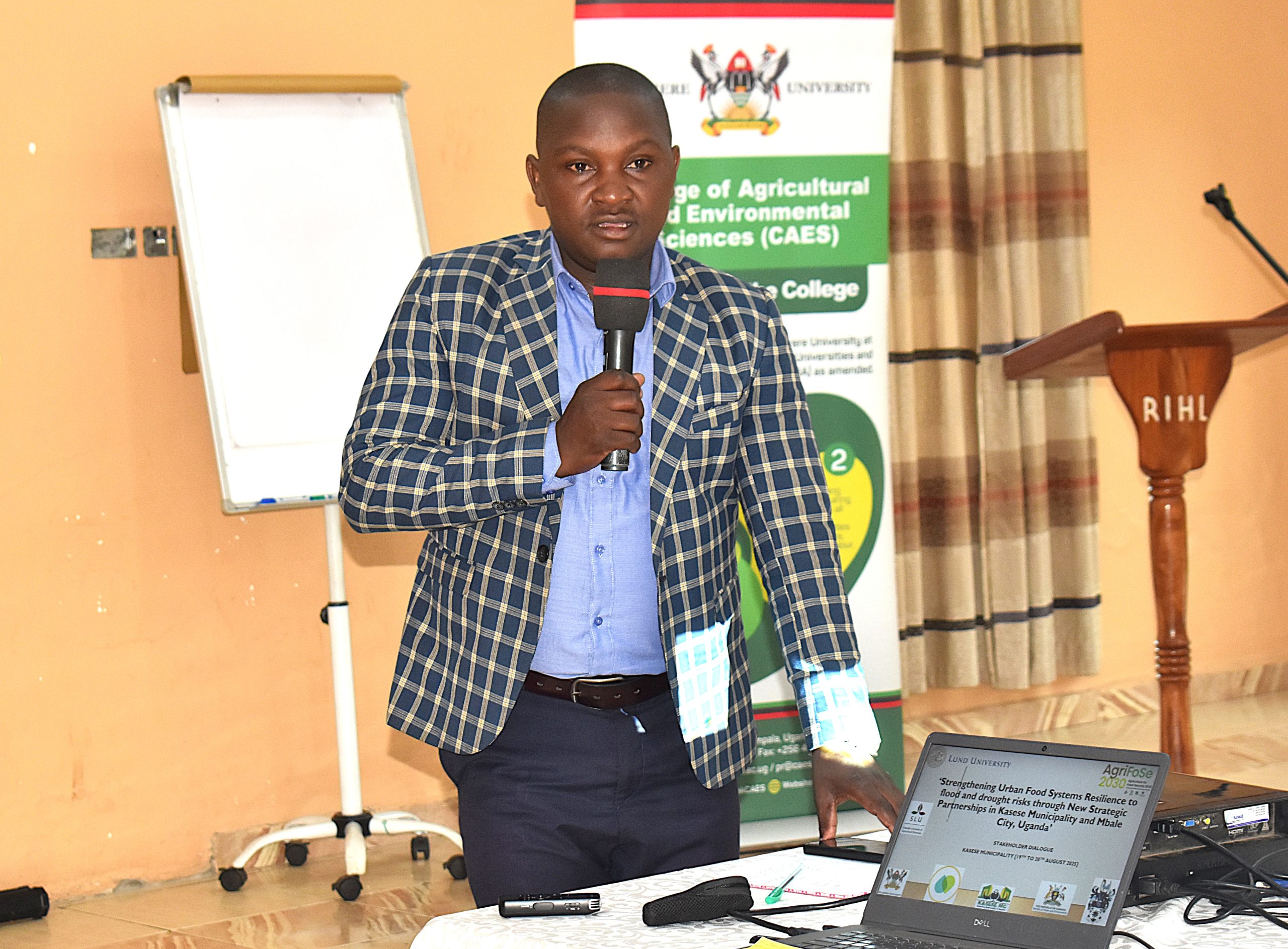
To achieve these goals, the project will strengthen partnerships with key stakeholders, including the Ministry of Water and Environment, AidEnvironment, and potentially the Kampala Capital City Authority (KCCA). It will engage a range of expertise, including flood and drought modeling, spatial analytics, economic assessment of loss and damage, and the reconstruction of socio-hydrological histories of river flows to inform current debates. Participatory methods will be central to the project’s approach, including charrettes (with role plays), walkshops and transect walks, participatory community mapping (of resources, actors, and hotspots), peer-to-peer learning, and experiential learning activities. The core team will be expanded to include policy actors, and innovative partnerships will be developed with government programmes such as the Parish Development Model (PDM) and Operation Wealth Creation (OWC). The project will also explore opportunities for shared use of limited public land for demonstration purposes, and emphasize co-creation of knowledge among all stakeholders.
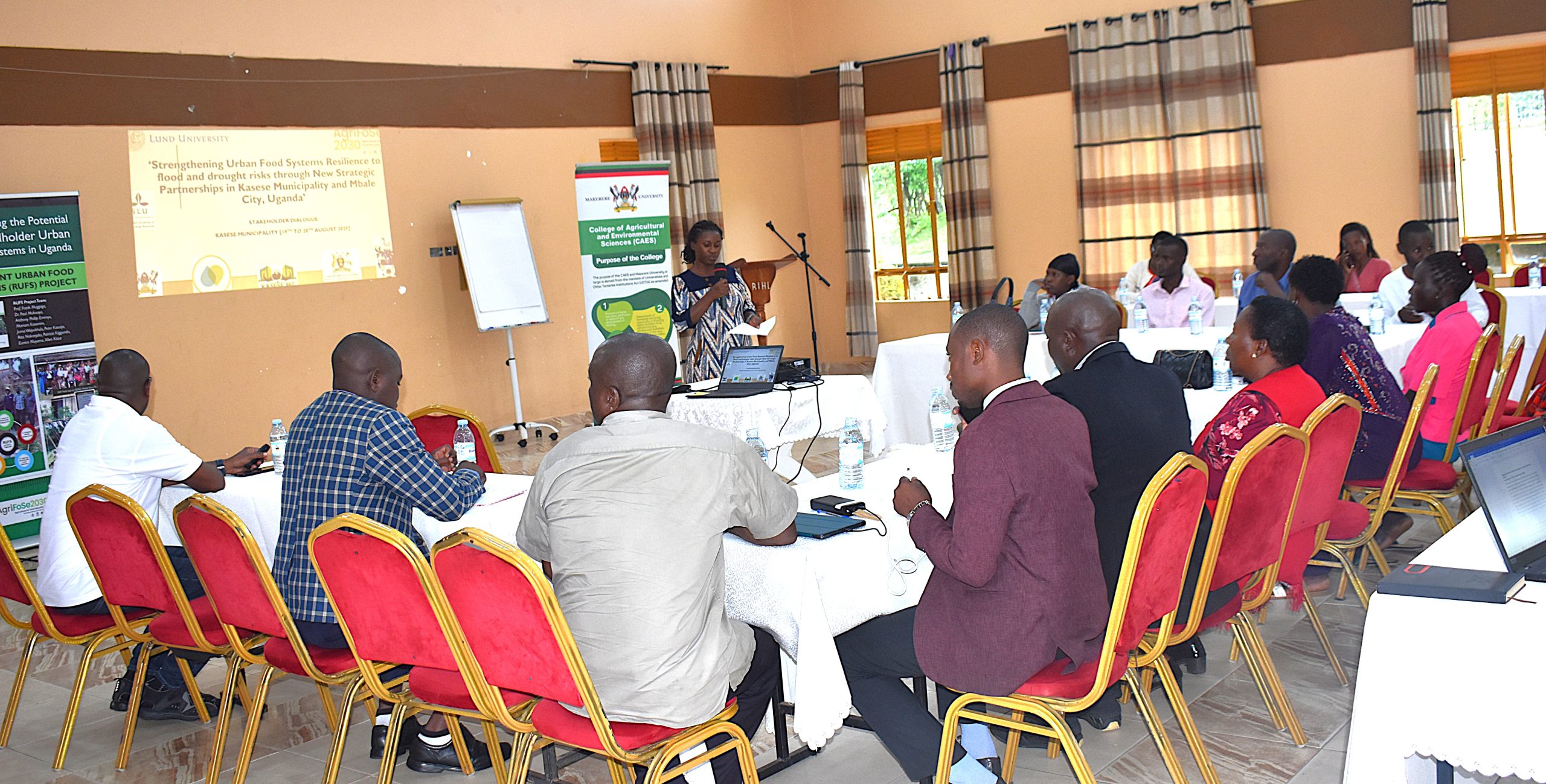
RUFS Phase II stakeholder engagement in Kasese
The RUFS project team, led by Prof. Frank Mugagga, conducted a stakeholder engagement in Kasese from 17th to 20th August 2025. The primary objective of the engagement was to formally introduce the extension phase of the project and to foster in-depth discussions with key stakeholders on strategies aimed at enhancing and strengthening the ongoing operations.
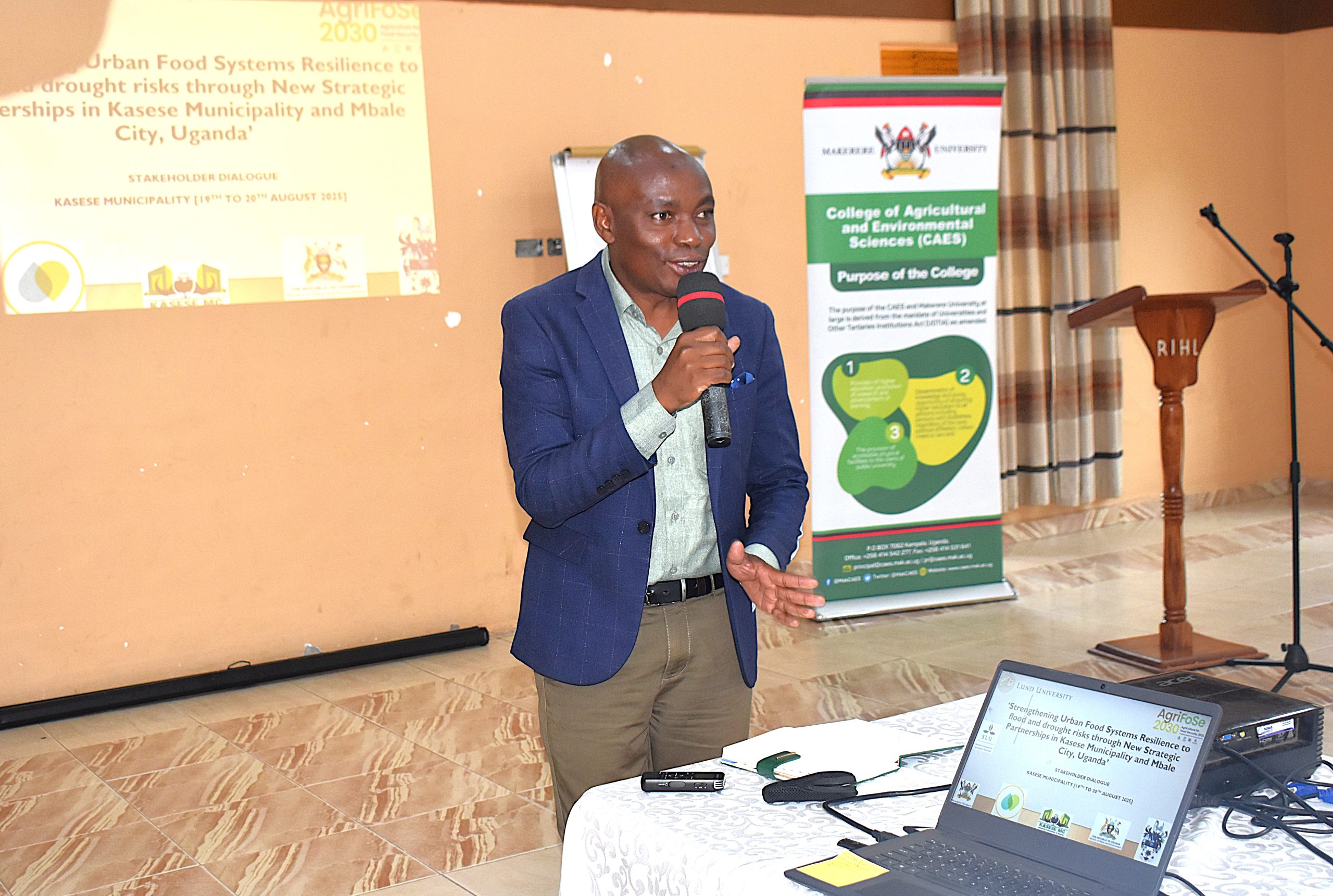
The event brought together a diverse group of participants, including representatives from the local government, community leaders, implementing partners, and technical experts. Through collaborative dialogue and knowledge sharing, the team sought to align the project goals with community needs and to ensure effective coordination amongst all parties.
The engagement provided a vital platform for stakeholders to offer insights, address challenges, and contribute to the development of sustainable solutions that will drive the success of Phase II of the project.
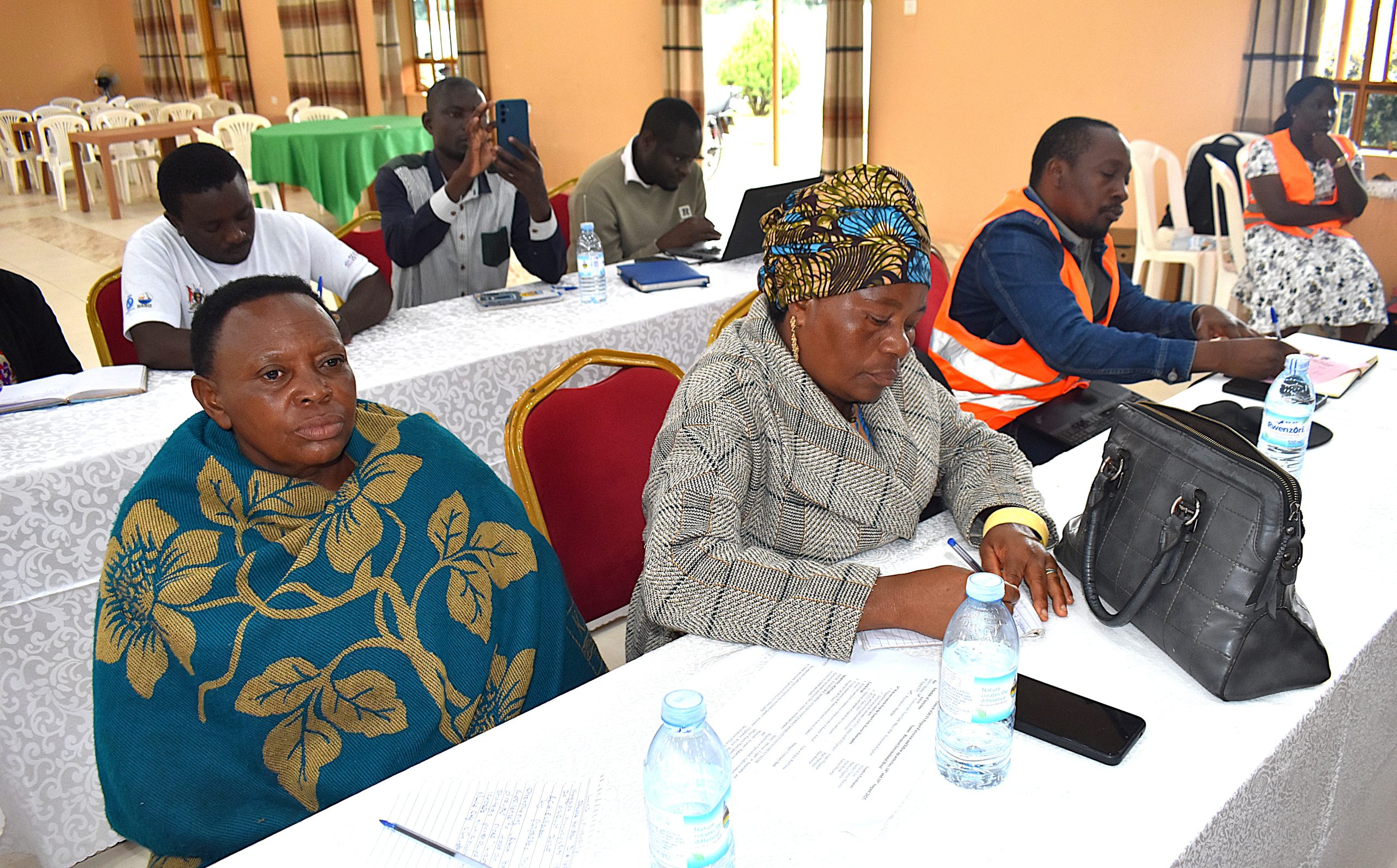
Highlights from the workshop
Held at Rwenzori International Hotel in Kasese, the two-day workshop featured targeted presentations on enhancing smallholder farmers’ resilience to climate change, effective emergency response mechanisms in the face of climate extremes, and the role of advocacy in advancing community-led climate adaptation strategies.
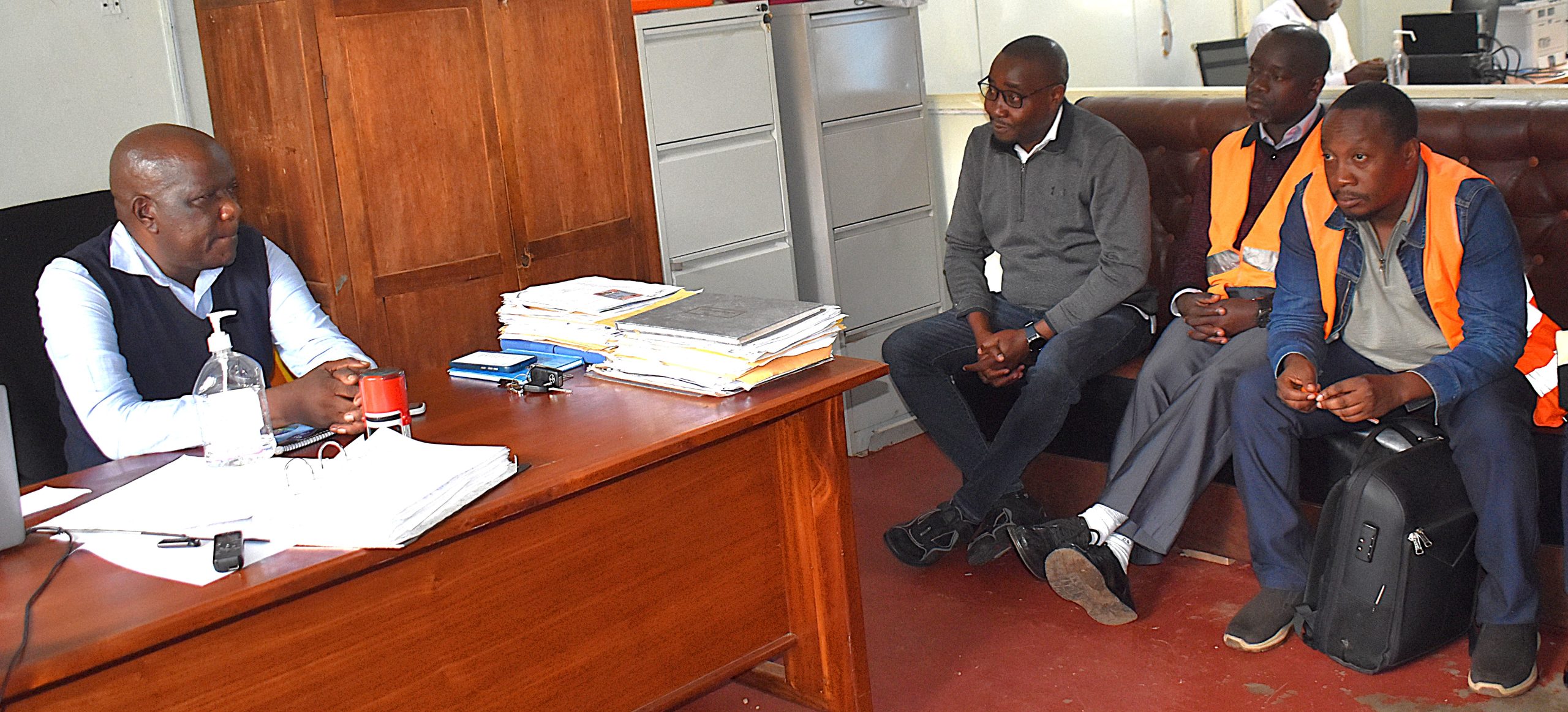
In their presentation, Mr. Henry Stanley Mbowa (AidEnvironment) and Mr. Muhindo Assanairi Bukanywa (Kasese Agricultural Officer) shared insights on climate-resilient agronomic practices, covering a number of topics including land preparation, crop management, pest control, water conservation, postharvest handling, and market access.

Mr. Kipurah Gideon briefed participants on the role of the Uganda Red Cross Society (URCS) in emergency response, offering an insightful overview of the organization’s operations within disaster management frameworks. In relation to the RUFS Project, which focuses on enhancing urban resilience and food security, Mr. Kipurah explained how URCS integrates emergency response strategies to mitigate the impact of crises on vulnerable populations.
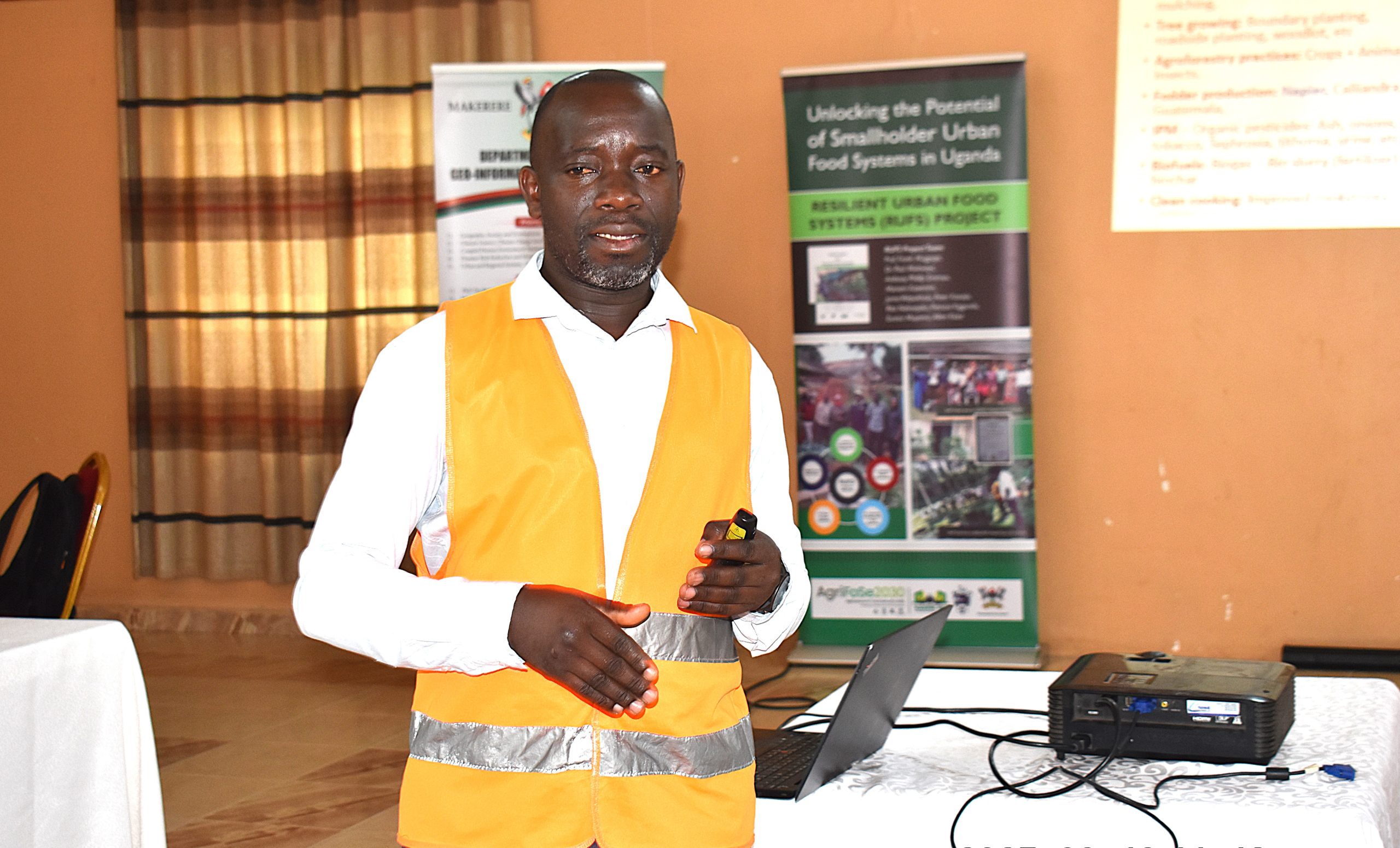
In his address, Mr. Lhughabwe Wilson, Principal Community Development Officer, Kasese Municipality, emphasized the pivotal role of advocacy in building climate-resilient communities. He noted that effective advocacy enables local stakeholders to influence policy, mobilize resources, and promote sustainable, community-driven solutions, all critical to developing resilient urban food systems in the context of growing climate uncertainties.
Remarks and success stories by the RUFS Champions
During the workshop, RUFS champions alongside several farmers from Kasese Municipality shared their success stories, highlighting the positive impact their initiatives have had on the community. Ms. Eunice Muyama, a Physical Planner from Mbale City and a committed RUFS Champion, emphasized the need to integrate urban farming into wider infrastructure development plans. She highlighted the challenges brought about by rapid urbanization, which continues to consume valuable land and reduce green spaces. “It is vital that we implement innovative planning strategies to make the most of even the smallest plots of land.” To set a practical example, she personally practices urban farming at her home, demonstrating that it is both feasible and beneficial to cultivate crops within city environments.
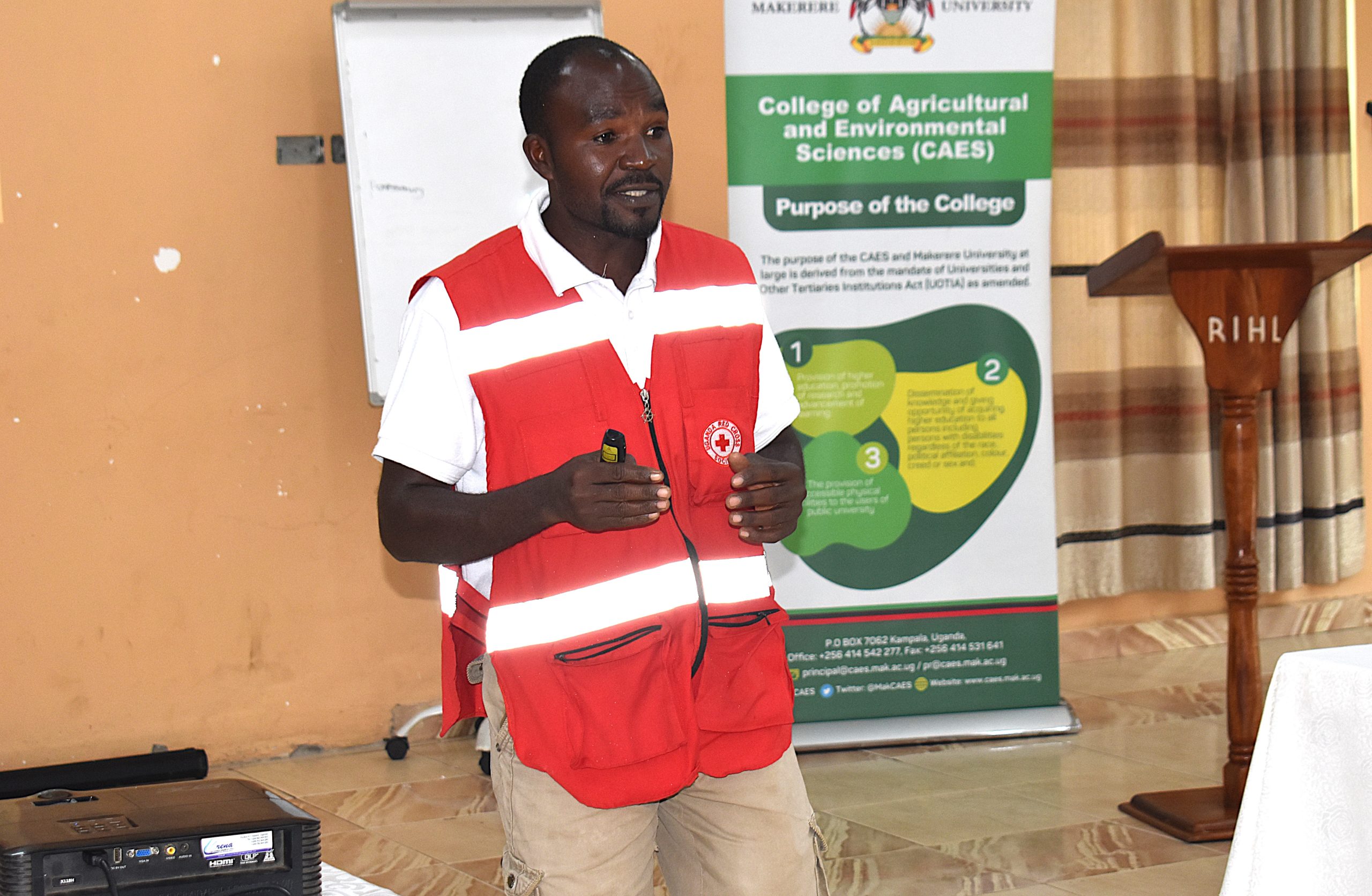
Mr. Juma Wephukhulu, a dedicated urban farmer in Mbale City credits the support of the RUFS Project for his transformative journey from a small-scale backyard gardener to a prominent agricultural entrepreneur and community mobilizer. In 2012, inspired by the story of a Kenyan woman who turned her backyard garden into a thriving vegetable supply business for Nairobi’s hotels, Juma made a life-changing decision. He resigned from his job of managing a guest house and embarked on a mission to replicate similar success through urban farming. With only 45,000 Ugandan shillings and a family of six in a rented home, his resolve to succeed was unwavering. “I was driven by the idea that wealth and opportunity can be right on your doorstep,” Juma said.
Starting in 2014, Juma laid out a detailed plan to establish a demonstration farm and training centre, supply fresh vegetables to neighbours, sell seedlings and mature plants, produce organic manure, and train local farmers. Despite challenges like the COVID-19 pandemic, his enterprise thrived, gaining traction through media appearances and community workshops.
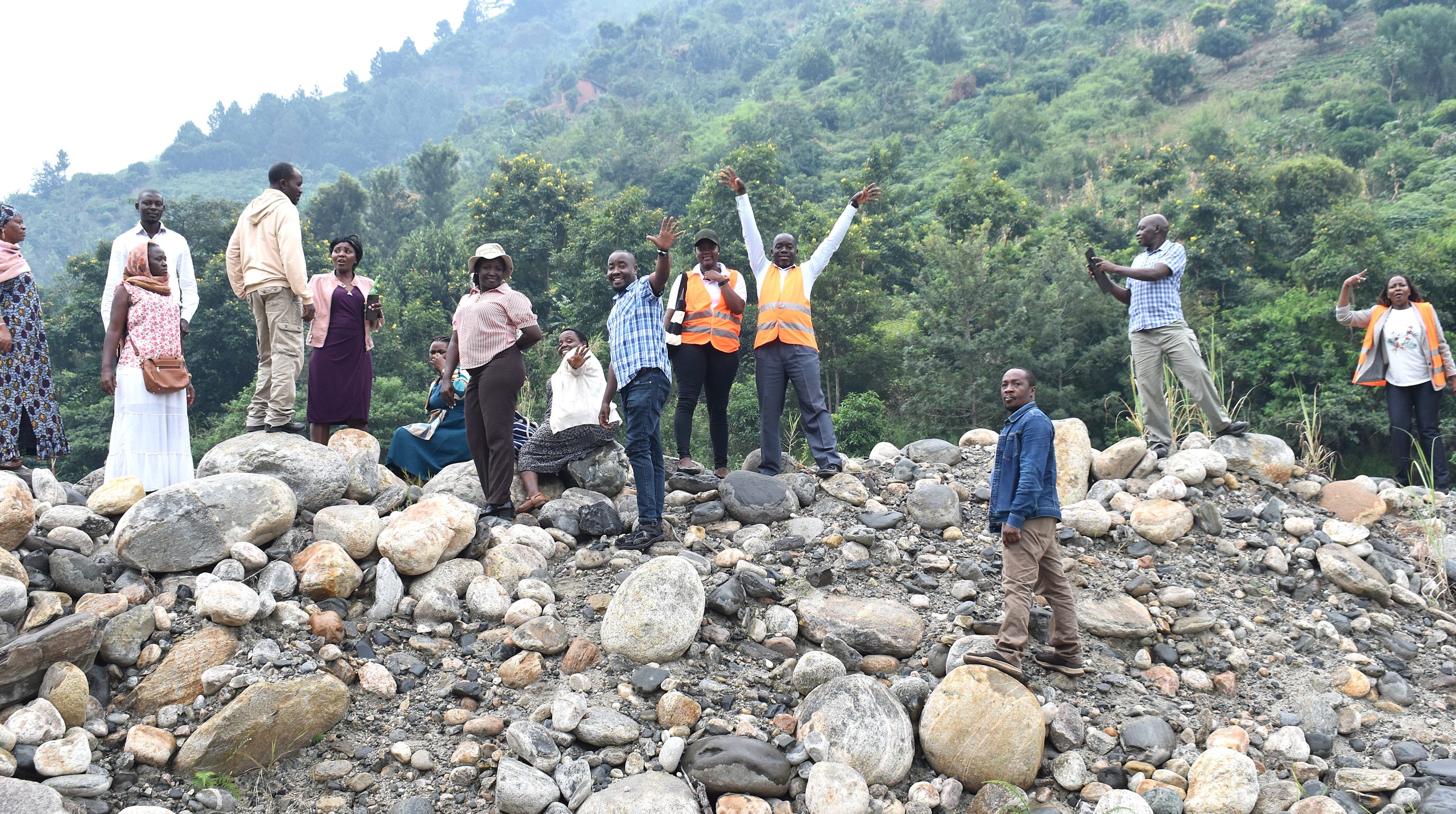
A significant turning point came in 2021 when Juma was selected to participate in RUFS activities in Mbale. With the involvement of RUFS, Juma’s farm and leadership abilities gained greater recognition. He was elected Chairperson of the Mbale City Food Systems Platform (MCFS), further amplifying his impact in the region. The project support went beyond training and resources; they sponsored Juma and his colleague Mary to attend the prestigious Harvest Money Expo in Kololo, providing funds for food, transport, accommodation, and allowances. The project also facilitated media documentation of Juma’s success story through NBS and Salt TV, helping share his inspiring journey widely.
With RUFS assistance, Juma and his team registered their platform as a Community-Based Organization (CBO) in August 2022, gaining official recognition and access to wider partnerships. He recently completed a book chronicling his farming experiences, supported by RUFS, to inspire and educate others. “The RUFS Project has been instrumental in my growth, not just financially but in exposure, training, and networking. Their support has enabled me to dream bigger, including plans to establish a 10-acre incubator farm integrating crops, fish farming, poultry, and more,” he narrated.
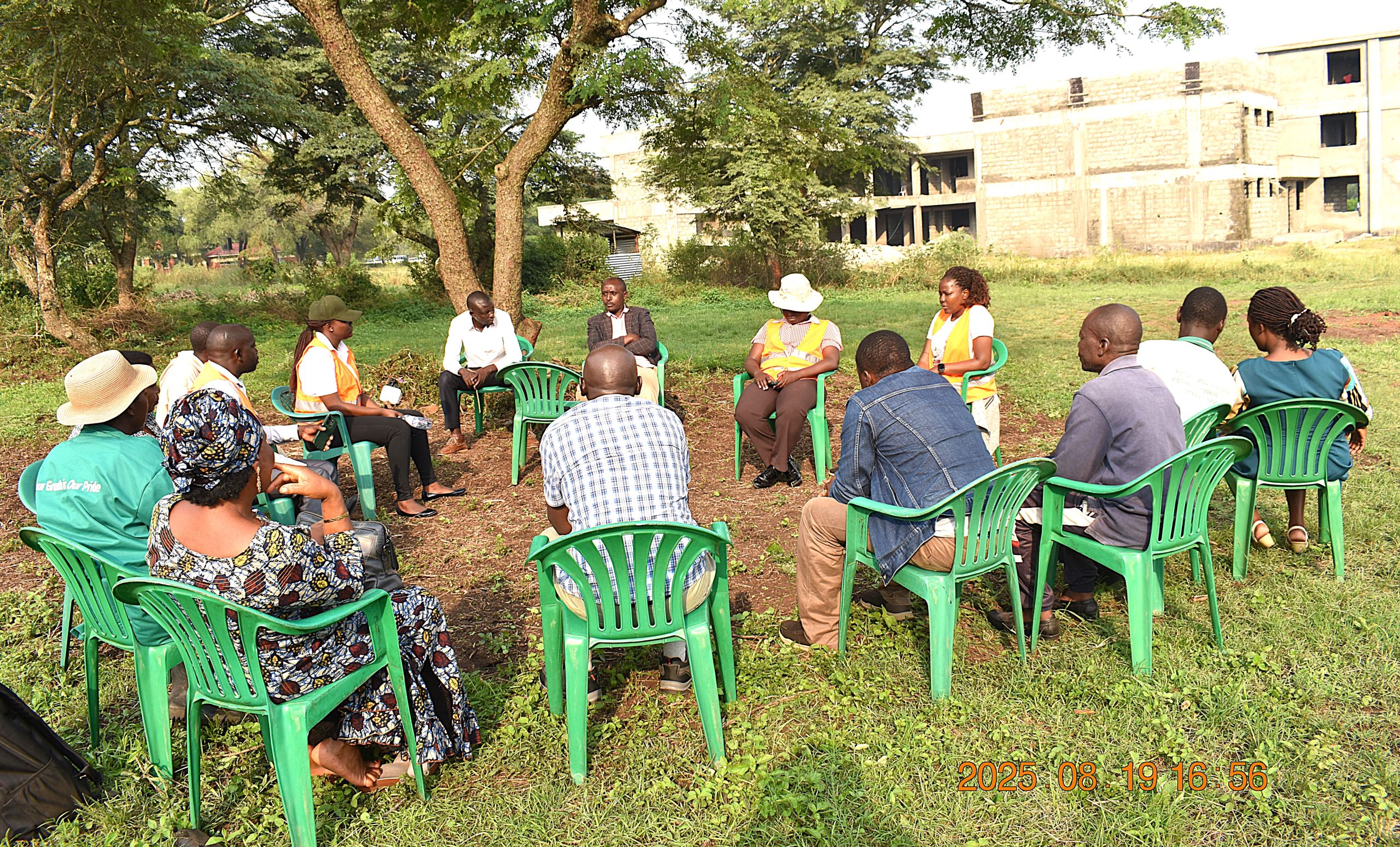
Ms. Eunice Mutooro Sunday, an urban farmer in Kasese and lead smallholder on the RUFS Project, has become a passionate advocate for urban and kitchen farming in her district. Through her active participation in the RUFS Project, Ms. Mutooro gained invaluable exposure to innovative urban farming models and acquired advanced agricultural techniques that have significantly enhanced her farming practices. This experience not only deepened her knowledge but also ignited a strong passion to empower others around her. As a respected leader within her local church, she leverages her influential position to mobilize community members and champion sustainable agricultural practices. She has become the primary ambassador of the RUFS initiative in her congregation, where she leads training sessions focused on kitchen gardening and sanitation. To foster enthusiasm and engagement, she introduced friendly competitions among households, encouraging them to cultivate and consume a minimum of three different types of vegetables from their own gardens. This innovative approach has successfully motivated many families to embrace home-grown produce as part of their daily diet. Through her tireless efforts, she encourages everyone to become proactive agents of change.
Mr. Edrick Bwambale, a smallholder farmer based in Kasese Municipality explained how the RUFS Project inspired him to mobilise fellow youth to establish an organization focused on promoting sustainable agri-food systems. The organization, known as ‘Sustainable Agri-Food Initiative (SAFI)’, is now working to address key challenges in food systems within Kasese District.
Remarks by the district officials
Addressing the participants, the Deputy Mayor of Kasese Municipality, Mr. Mapungo Rabson, together with the Deputy Town Clerk, Mr. Kambasu Zedekiah Kayiri, expressed appreciation for the RUFS project. They commended its forward-thinking and strategic approach in addressing the complex challenges facing the district, particularly those arising from rapid urbanization. Both officials emphasized that initiatives like RUFS are essential for promoting sustainable development, enhancing food security, and building the resilience of urban communities amidst increasing environmental and socio-economic pressures. The Deputy Mayor emphasized the need for a sustainability plan to ensure that the benefits of such initiatives are maintained and enhanced over time.
Assessment of the progress of RUFS Phase II
At the end of the workshop, the RUFS team conducted site visits to assess the progress of Phase I initiatives. One such visit was to Mobuku II Cooperative Society, a farmer group established during Phase I that now includes 385 members, many of them women and youth. The cooperative has successfully secured fair contract farming deals, embraced agribusiness, and adopted climate-smart practices.
During the visit, in-depth discussions were held with cooperative leaders to identify opportunities for RUFS to continue strengthening support for smallholder farmers in Kasese. The dialogue focused on scaling sustainable farming techniques, improving market access, and enhancing the cooperative’s capacity to build resilience against climate-related challenges.
Way forward to ensure sustainability of the RUFS Project
Participants proposed that the municipality allocates land for community demonstration projects and supports their expansion. Moving forward, Phase II of the project will focus on establishing and developing local demonstration sites. These sites will serve as key platforms to showcase tangible progress, innovative approaches, and best practices to stakeholders and the broader community. This strategy aims to encourage greater engagement, facilitate knowledge sharing, and promote the replication of successful models, thereby ensuring scalability and sustainability of the RUFS Project.
Pictorial of the RUFS Project stakeholder engagement in Kasese Municipality –
https://drive.google.com/drive/folders/1XM64I-bKTvGb-uN_w9jIxaAuOWJwFSZX?usp=sharing

